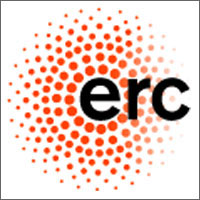ERC stats show high number of overseas applicants
The European Research Council (ERC) has provided further information on the 9,167 applications received for the ERC's first round of grants, the Starting Grants for independent researchers. In April the ERC's Scientific Council announced how many applications had been received, and the figure of 9,167 was much higher than many were expecting. Now the Scientific Council has given details of how many of the applications address each of the three domains outlined in the call for proposals, which countries the applications have come from, and how many people have applied to be a member of the evaluation panels charged with reviewing the proposals. 'Like the applicants and the panels, the ERC Scientific Council is keenly aware that the available budget is not sufficient to fund all the deserving applications,' says the ERC Scientific Council. 'We can only reiterate our commitment that excellence will be the sole criterion: for selecting the first-stage applications whose PIs [Principal Investigators] will be invited to submit full (stage 2) proposals, and for selecting the full proposals that will be funded later in the year.' A significant number of PI applicants are currently living outside of the EU. 'This suggests that, over time, ERC grants can enhance the competitiveness of Europe by recruiting overseas research talent,' says the Scientific Council. For analysis purposes, the Scientific Council has divided the countries from which applications have come into six different groups. The first group, comprising the six founding members of the European Economic Community (Belgium, France, Germany, Italy, Luxembourg and the Netherlands) was by far the most active in submitting applications. Some 44.8% of the PIs that submitted proposals are currently living in these countries, while 46.2% of the institutions at which the research would be carried out are in this part of Europe. The next geographic bloc in the table comprises the other nine EU Member States that joined in the years before 2004. Some 35.5% of Principal Investigators are currently resident in these countries. The 12 countries that have acceded to the EU since 2004 account for 8.6% of current countries of residence, which is only just ahead of the figure for the seven countries associated to the EU or having 'candidate country' status (7.9%). The final two groups comprise 'overseas highly developed countries' (2.8%) and 'overseas developing or emergent developed countries' (0.4%). The PIs can be of any nationality or current location, but must apply in conjunction with an institution in an EU Member State or associated country, where he or she will be based for at least the period of the grant. As specified in the original call for proposals, the ERC pre-allocated most of the 2007 Starting Grants to three broad domains: 15% for social sciences and humanities; 40% for life sciences, including medicine; and 45% for physical, mathematical and engineering sciences. The fields addressed by the applications largely mirrored this division (14.9%, 37% and 48.1% respectively). Finally, oversubscription was not limited to the grants. Multi-disciplinary evaluation panels have now been put together, and all received numerous applications. The five most popular panels received between 672 and 768 applications each. The Scientific Council hopes that this breakdown of data on applicants will prove helpful for individual communities wishing to assess their standing.



